Rush to the Summit
by Mort Kunstler
Chamberlain at Gettysburg, July 2, 1863
Thirty-four year-old Colonel Joshua L. Chamberlain's orders were clear and urgent: Move your regiment and do it fast. It was the second day at the Battle of Gettysburg, and General Robert E. Lee's formidable Army of Northern Virginia was making its attack. The day before, Lee's hard-fighting troops had broken the Federal line and had driven Northern troops through the town of Gettysburg in defeat and near panic. They had been stopped and reformed on a new line atop defensible high ground called Cemetery Ridge - and now Lee had struck again.
This time two Confederate assaults came simultaneously; one came against the right side of the Federal line, and the other against the left side. On the left, the Northern defenders began giving way, and the Southerners were on their way to capturing a strategic, undefended battlefield landmark - a high wooded hill called Little Round Top. If captured by the Confederates, it could mean destruction of the Federal line. The battle - and maybe even the war - could be lost for the Union. A frantic call was issued for Federal troops to defend the crucial hill. In response, four regiments of Northern troops were rushed to Little Round Top’s summit. One was the 20th Maine Infantry, commanded by Joshua Chamberlain, who led his men up the rugged hillside to defend the vitally important Federal left flank. The regiment’s orders were to hold their position ”at all hazards,” they could not let the enemy turn that far left flank.
Colonel Chamberlain was no professional soldier: He was a college professor who had left the classroom to volunteer for duty. But he was a natural leader, and at Little Round Top he proved it. His troops piled up a line of stones and fence rails, and waited for the inevitable attack. It came soon charge after charge by the 15th Alabama Infantry, which was one of the toughest regiments in Lee's army. Hickory-hard fighters, the Alabamians had never failed to take an objective - but this day they did. Despite a valiant effort, they were turned back by Colonel Chamberlain and the men from Maine. The decisive moment came when Chamberlain, realizing his troops were out of ammunition, ordered a desperate but successful bayonet counter-charge that saved the day. Saved too, for the Union, was the Federal army - and perhaps the war. Colonel Chamberlain and the 20th Maine had rushed to the summit, and had prevailed.
| Style | Image Size |
| Archival Paper | 16" x 30 1/2" |
| Signature Edition | 14" x 27" |
| Classic Edition | 18" x 34" |
| Premier Edition | 21" x 40" |

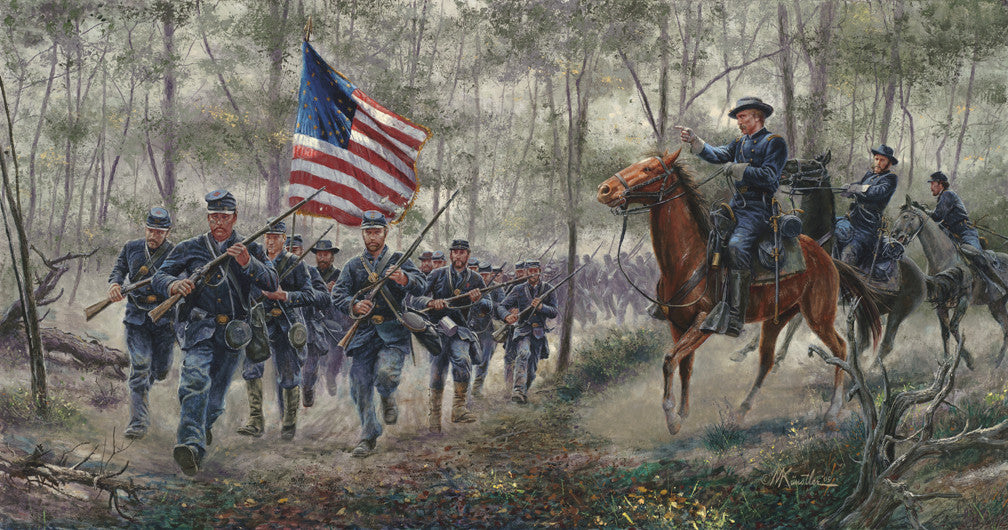
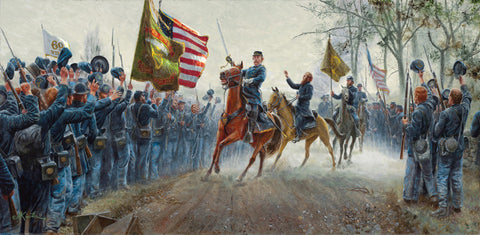
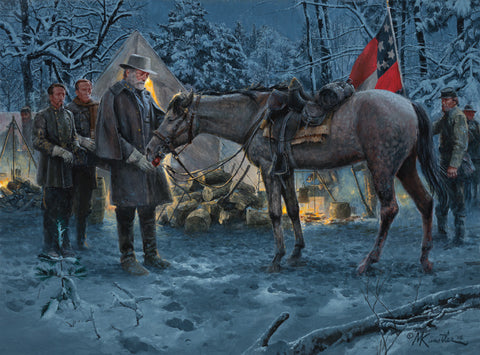
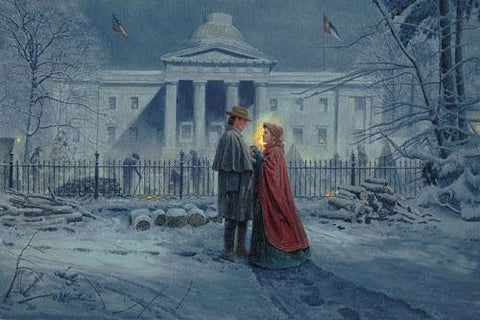
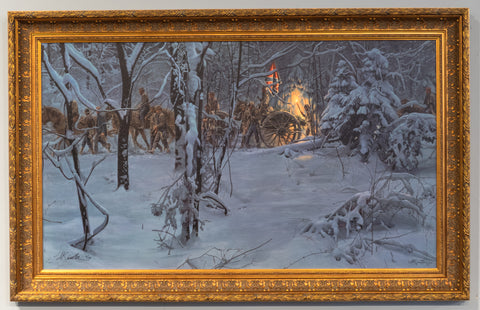
Share this item: